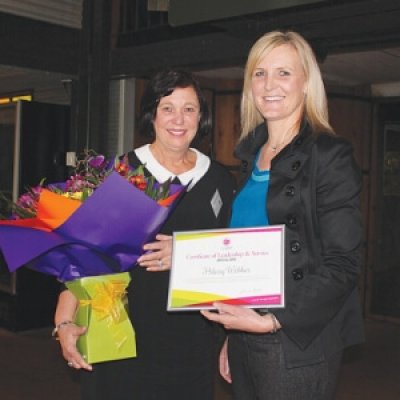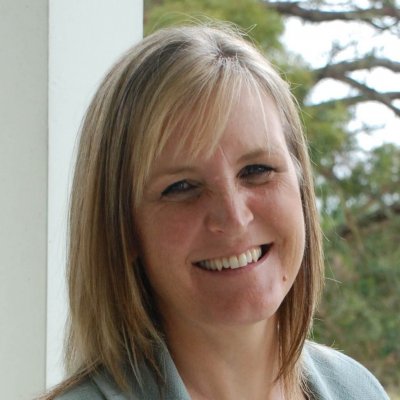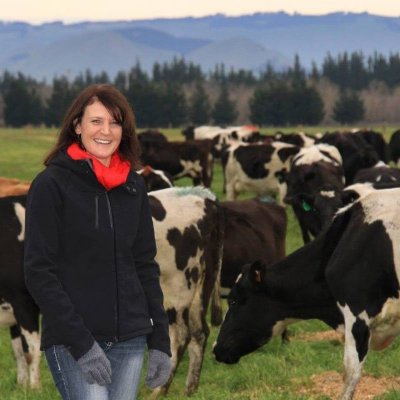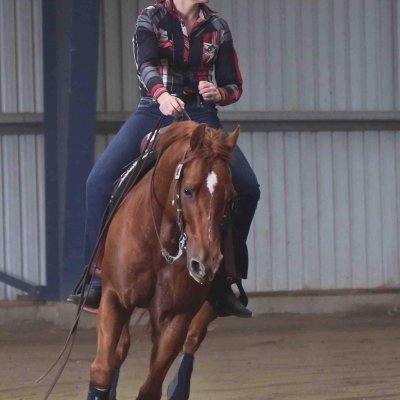Growing up in a small New Zealand town in the heart of the King Country, Justine’s childhood revolved around school, ponies and sport. With a career immersed in the dairy industry, Justine has lived right across the country and is now settled in Te Awamutu, not far off the beaten track from where she grew up. A proud dairy business woman, she has a wide range of experience under her belt in consulting, business management, farm purchases, equity partnerships, property development and leading multi-farm businesses. With a passion for bringing teams of people together from all over rural and remote New Zealand, she’s learnt through tragedy the power of putting one foot in front of the other, in giving yourself permission to work it out as you go, and in the value in surrounding yourself with great people. Justine is happiest when she’s tackling a business challenge and is spending quality time with her horses and her partner, Hamish.
When asked what concerned Justine about the health and safety of those in rural industries and communities, she highlighted the fact that as an industry, we have a tendency to underestimate the risks associated with long, physical hours working in isolation and in ever-changing work environments. Justine said that challenging business owners to establish a maximum number of working hours or days in a row will go a long way towards promoting a safer, healthier and more productive work culture. Justine also emphasised that taking the time to train, teach and help a new worker could be the difference between them hurting themselves or someone else. A self-described stickler for wearing seat belts, Justine believes that ‘making it click’ is one of our biggest life-savers.
How would you describe yourself in three words?
Enterprising, loyal and determined.
Tell me something interesting about yourself...
I grew up in small town New Zealand, Te Kuiti, going to the local schools and forever appreciative of the opportunities and experiences that were afforded to me as a result of this. As a kid my life revolved around school, my ponies and playing sport. I went to Massey University and completed a Bachelor of Agricultural Science, then my first job was in the dairy industry as a ‘Consulting Officer’ for what was then the Dairy Board. My first posting was to the West Coast of the South Island and I learnt a lot! I’ve spent my career in and around the dairy industry and have been involved in consulting, business management, farm purchases, equity partnerships and property development. I had a stint leading multi-farm businesses from 2008 – 2019 and loved the challenge of bringing together big teams of people across remote locations.
What's one achievement you are most proud of?
Navigating the challenges we faced with BEL Group (a dairy farming business) when the founder, owner and leader of this business, Peter Barry, was tragically killed in an accident doing what he loved – racing stock cars. A few months before Pete’s death, I had started helping to structure and organise their business to enable Peter to move into the next phase of things he wanted to do. After his death I worked with Andrea and the BEL Group team as we faced our new reality head on, established business management systems, grew the business buying new farms and set it up for future sustainability and succession. It was a big and challenging time and we all missed Peter dreadfully. I learnt the power of putting one foot in front of the other, finding and keeping great people around you and just getting on with things, believing that you can work it out as you go.
What makes you truly happy?
Hanging out with my husband Hamish, riding my horses and spending time with my friends and the little people in their lives. I’m also truly happy when I’m tackling a business challenge and feel like I am making a positive difference to the people involved. So my absolute happy place is when I’ve got both – my teeth into a business challenge and structures to keep my time with Hamish, my horses and friends.
What do you love the most about being a rural woman?
The opportunities, networks and support that the rural industry affords to help you be whatever you want to be. I love the people that you come across, the sense of community on farms and the nature of the business that keeps us all grounded!
Tell me about a time when you felt worried about your own or someone else’s health, safety or wellbeing on the farm, boat or in some other aspect of rural life.
When I was in leadership roles with BEL Group and The Land Farm Group, it used to worry me when we struggled to resource our teams and/or help our farm managers to create team routines and cultures that protected hours worked and days rostered on and off. I think working on big farms, often being on your own, working long hours with both physical work and weather impacts – which make days challenging – are much bigger issues and much riskier than we like to admit. I was always challenging the business and the team leaders to think about how we could get our hours down and create rosters so that people weren’t working more than five or six days in a row.
What practical things did or could you, your partner and / or others do to prevent someone from getting hurt?
One of my little actions that I take on farm no matter what, is to wear a seat belt. I find that I get into farm utes particularly and I put my seat belt on – though I’ve had real estate agents say to me “You don’t need to worry about that”. I just smile and say “Yes I do, it’s the biggest life-saver we have”.
I also think that on-farm, we really underestimate the importance of on-board training, helping people to start a job, learn a new job or do something for the first time. I know even with my husband on the (very) odd day that I help out with something on his farm, that it is so tempting for him just to send me off or leave me to it. I’m a bit of a stickler for speaking up and saying “Hey, I haven’t done this for ages” or “I’m not confident at this you need to show me”. I know this isn’t easy for people on farm or starting a new job and I wish team leaders and managers would help to make this easier for people.
"Role model by doing – wear your seatbelt and your helmet, ask for help and ask to be shown how to do something properly."
Justine Kidd, Te Awamutu, Waikato NZ Tweet this
Is there a time, place or scenario when your partner / workers are more willing to make changes to the way work is done?
I’ve found over the years that time pressure to get things done is the biggest killer of both innovation and safety. So in order to make changes, we need to create time – and that can be hard. It’s hard to remember that an extra minute in planning will save at least 10 minutes in the doing. The more we all listen to each other on the farm, talk about what we’re doing, why we’re doing it and ask for ideas to make things more efficient, safer and easier – the better every day will be out there.
If you could give any advice to another rural woman about work health and safety in rural industries, about influencing change in business - or just in general - what would it be?
Role model by doing – wear your seatbelt and your helmet, ask for help and ask to be shown how to do something properly.
Encourage the teams you are involved with to ‘plan, do, review’ – help make the planning and reviewing a bit of fun, maybe share a cuppa or a lunch, so that the team starts to see the value in spending this time together because they are actually doing it.
Share your stories of success and change, as well as challenge and adversity. The more we hear from each other, the more it gets inside us and into the heart, which is where it makes an impact.
Is there anything else you'd like to add?
When I was a university student doing my practical work experience on a dairy farm, I rolled a tractor, crashed a three wheeler bike (yes it was that long ago!), damaged a mower and almost knocked out a child when I hit the brakes in a ute and he smacked into the dashboard. I loved the job, loved the family I was working with, but I look back and think crikey we were loose and fast with learning on the job! Please always plan to have time to show, teach and help people when they are on farm with you. Nothing is so important that someone hurts themselves or hurts someone else just because they were trying hard to do a good job and be a good worker, but you didn’t take the time to help, show and teach. Start slow with everyone, no matter how keen or experienced they are!




